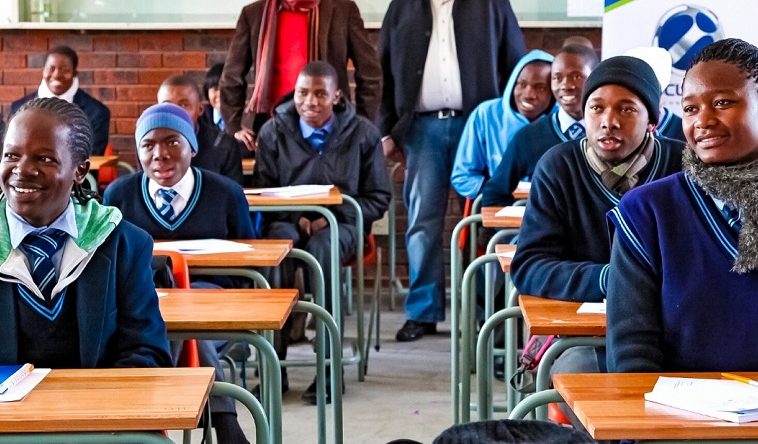Africa’s democratic terrain has undergone substantial evolution, characterised by successful elections and peaceful transitions of power across multiple nations.
These successes offer powerful examples of how democratic institutions, reforms, and civic engagement are progressively becoming cornerstones of governance on the continent.
Countries like Ghana, Kenya, Nigeria, Rwanda, and South Africa have materialised as key case studies in the progress of Africa’s democratisation journey, showing that while challenges remain, positive changes are being made to secure the future of African democracies.
Ghana: A Model for Democratic Elections
Ghana has consistently set the bar for peaceful elections and the smooth transfer of power, which is seen as a hallmark of democracy. Since its return to multiparty democracy in 1992, Ghana has managed six successful elections, cementing its place as one of the most stable democracies in West Africa.
The 2020 elections, where Nana Akufo-Addo was re-elected, are particularly noteworthy, featuring the extensive use of biometric technology to ensure voter verification and reduce fraud. With a strong independent electoral commission and high civic engagement, Ghana has shown how transparent elections can lead to lasting political stability, which in turn fosters economic growth and international credibility.
Kenya: Electoral Reforms and Judicial Independence
Kenya’s electoral history has seen its share of controversies, most notably the post-election violence of 2007. However, since then, the country has embarked on an ambitious path of electoral reform aimed at restoring faith in the system. In 2017, the Supreme Court annulled the presidential election, citing irregularities, and ordered a rerun.
This decision, unprecedented in Africa, demonstrated Kenya’s growing commitment to judicial independence and electoral transparency. The reforms put in place since 2010, including the formation of the Independent Electoral and Boundaries Commission (IEBC), have helped reduce conflict and increase trust in the electoral process. These changes have fostered political stability and given citizens greater confidence in the democratic system.
Nigeria: Strengthening Democracy through Technology
Nigeria, Africa’s most populous country and largest democracy, faces unique electoral challenges due to its size and diversity. Yet, recent elections have demonstrated a clear commitment to improving transparency and reducing fraud. The use of electronic voter transmission in the 2023 elections marked a milestone in Nigerian democracy.
While the elections were not without irregularities, the increased transparency, especially in real-time reporting, has been an important step toward electoral credibility. As the country continues to improve its electoral processes, these reforms are seen as crucial for the future of democracy in Nigeria and the broader West African region.
Rwanda: Post-Conflict Transition to Stability
Rwanda’s path to democracy is unique, given its traumatic history. After the 1994 genocide, Rwanda has rebuilt itself into one of Africa’s most stable and rapidly developing nations.
Since 2003, the country has held regular elections with high voter turnout, reflecting its citizens’ active participation in governance. Rwanda’s model, often referred to as “consensus politics,” seeks to avoid the polarisation typical of multiparty systems. Under President Paul Kagame’s leadership, the country has prioritised development and unity, showing that a focus on stability and growth can go hand-in-hand with democratic participation.
South Africa: Upholding Democratic Integrity
South Africa’s democratic transition in 1994 remains one of the continent’s most celebrated successes. The country’s Independent Electoral Commission (IEC) has played a critical role in ensuring free, fair, and transparent elections since Nelson Mandela’s election.
Although recent elections have seen the African National Congress (ANC) lose ground, the political landscape in South Africa remains robust, with multiple parties competing, a testament to the nation’s strong democratic institutions. South Africa’s electoral system, based on proportional representation, has provided a model for ensuring that even smaller parties have a voice, promoting inclusivity and reducing electoral tensions.
Key Factors Contributing to Success
1. Electoral Reforms and Strong Institutions: Key to the success of elections in these African countries has been electoral reforms and the establishment of independent electoral bodies. Ghana’s Electoral Commission, Nigeria’s Independent National Electoral Commission (INEC), and Kenya’s IEBC have played crucial roles in managing transparent elections, settling disputes, and providing a platform for democratic participation. These institutions act as pillars of electoral credibility.
2. Technological Innovation: The use of technology in elections, particularly in voter registration and result transmission, has significantly reduced the possibility of fraud. Biometric verification in Ghana and Nigeria and the electronic transmission of results in Kenya have set a new standard for African elections. These innovations are crucial in ensuring that election results reflect the true will of the people.
3. Judicial Independence: Judicial oversight in electoral disputes has been a key factor in maintaining trust in the democratic process. Kenya’s Supreme Court ruling to annul the 2017 election results highlighted the importance of an independent judiciary in safeguarding electoral integrity. Such actions ensure that democracy is not just about voting but also about ensuring that the legal framework supports fairness and transparency.
READ ALSO: Healthcare Disparities: Comparing Health Systems Across African Countries
4. Civic Engagement and Voter Education: High voter turnout and political participation across these countries demonstrate the growing political consciousness among African citizens. In Ghana, for instance, voter turnout consistently exceeds 70%, reflecting the public’s trust in the electoral process. Civil society organisations have also played a crucial role in educating voters about their rights and contributing to peaceful and credible elections.
Africa’s Democratic Future
The democratic success stories of Ghana, Kenya, Nigeria, Rwanda, and South Africa offer valuable lessons for the continent. While challenges remain, these nations have shown that with strong institutions, electoral reforms, and civic engagement, Africa can strengthen its democratic credentials.
The progress witnessed in these countries serves as a playbook for a more democratic Africa, one where elections are not just an event but a continuous process of refining governance and fostering the people’s trust in their leaders.
Through innovation, reform, and participation, these case studies reflect the growing maturity of Africa’s electoral systems, setting a positive trajectory for the future of democracy across the continent.




